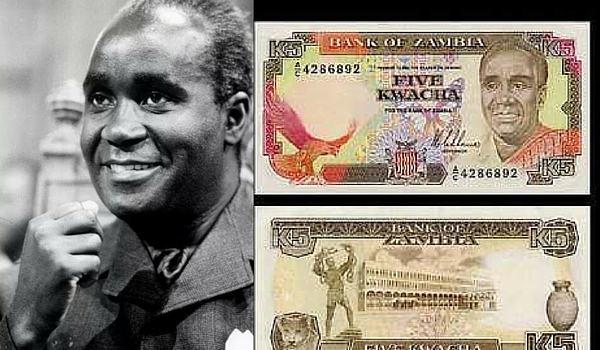
Colonialism, Nationalism & Independence in Zambia
The colonization of modern day Zambia began in the 1890s, when the Lozi chief Lewanika was deceived into signing a concession that gave the British South Africa Company an excuse to invade their land. Upon obtaining this concession the British South Africa Company began mining copper and lead. In addition they sold land to British farmers, sometimes for as little as 10 cents a hectare in order to encourage more European settlers. However, in 1924 the British South Africa Company gave up control over Northern Rhodesia. Thereafter, it was administered by the British government.
The copper mines developed in what is now known as the Copper belt created huge profits that were sent overseas. In order to develop an abundant workforce for the mines, the colonial government would charge taxes and prevent the local farmers from the ability to sell cattle and crops on the European market. In addition, the colonial government created reserves where they placed all farmers who had been removed from fertile land. Most of the reserves were overcrowded and the locals could not produce enough to feed their families. As a result, local farmers were forced to become low paid workers in the Copperbelt in Zambia and in the mines in South Africa.

In 1936, workers in the Copperbelt went on strike to protest low wages and brutal work conditions. However, the colonialists retaliated and killed 17 strikers and wounded 70. As a result of this incident, workers in the Copperbelt formed a union called the African Mine Workers Union. This union was responsible for organizing strikes in 1952 and 1955 which led to an increase in wages.
However, due to growing discontent over the colonial system of government, nationalist movements began to emerge. The Northern Rhodesian African Congress (NRAC) demanded an end to racial discrimination and more rights for educated Africans. This party was formed by mostly mission educated middle class who did not concern themselves with the plight of the farmers or miners. Thereafter, in 1951 white settlers proposed the formation of a federation of Northern and Southern Rhodesia and Nyasaland. After this, the NRAC changed its name to the African National Congress (ANC) and elected Harry Nkumbula as its leader. All nationalists in the three countries opposed the plan of federation because they viewed it as another way for white settlers to cement their power over natives. Despite this opposition, the federation was formed in 1953.
The federation benefited mostly Southern Rhodesia and mine owners but it inspired the ANC in Northern Rhodesia workers unions to organize strikes and boycotts of white owned stores and government agencies. To appease this growing discontent, the white settlers offered preferential treatment to educated middle class Africans by offering them better access to jobs. This led to disunity among the nationalists. Leaders like Nkumbula were more willing to concede to the compromise which led to the formation of the Zambia African National Congress (ZANC) with Kenneth Kaunda as President and Simon Kapwepwe as Treasurer-General.

After the riots in Nyasaland, ZANC was banned and its leaders arrested which led to the arrest of more than 100 Africans. From the ZANC emerged another party called the United National Independence Party (UNIP). Kenneth Kaunda assumed leadership of UNIP upon his release from prison. UNIP demanded majority African rule, one person one vote, equal work for equal pay and peaceful means to achieving these demands. Their demands attracted the support of workers and African farmers. The desire for peaceful protests was often thwarted in the rural areas where bridges and buses were attacked.
The growing discontent among Africans led to the dissolution of the federation. Thereafter, Kaunda and Nkumbula agreed to work together for the sake of achieving independence in Zambia. When the first election was held in 1964, UNIP led by Kaunda won 55 out of 65 seats and Kaunda became the first African President.




3 Comments
by Samson
It is amazing that some people like Nkumbula were wiling to abandon the less educated Africans just because they had education and the white settlers were willing to offer them breadcrumbs. Such a sellout
by Lola Jones
Throughout history educated black people have always considered themselves better than the rest. Here in America they called themselves the talented 10th. The European settlers however viewed them all in the same way as inferior subjects regardless of their educational attainment.
by Jomo
divide and rule, whites mastered this strategy and used it effectively.
Comments are closed.